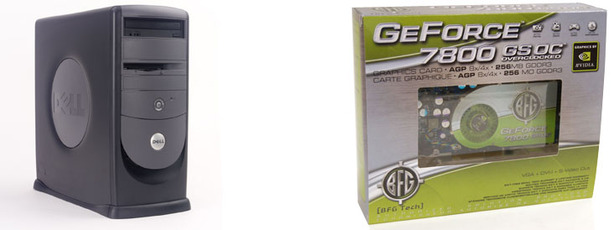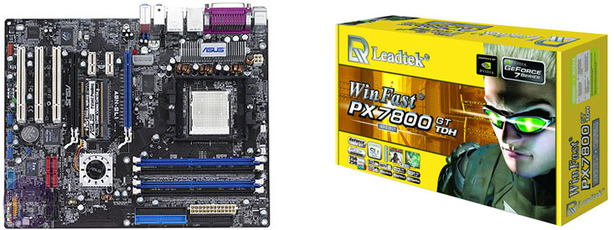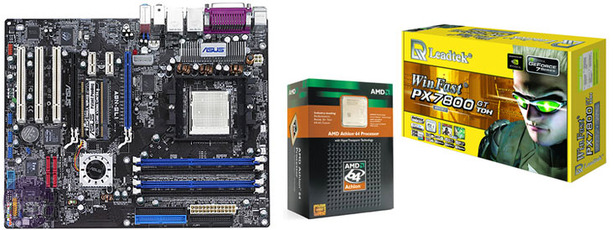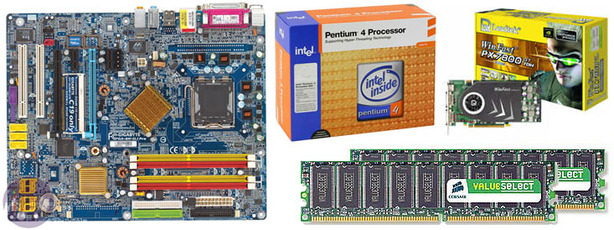Upgrade Path
Having established that the GeForce 7800 GS AGP is faster than ATI's fastest AGP part, the next question to address is: should you buy one? BFG's card goes on sale this weekend priced at US$349.99 Stateside, and £240 inc vat in the UK, substantially higher than we speculated back in December.When we thought the card might be a US$250 / £150 purchase, we had several readers in our Forums declare interest in buying such a card. However, with the final retail solution costing some 50% more, we need to take a step back and examine The Big Picture. For any current AGP card owner, there are essentially four possible upgrade paths, assuming you ignore a) keeping your current system and b) taking the opportunity to buy an entirely new system.
We have listed these paths below in order of least outlay to most expensive.
Option 1 - GeForce 7800 GS AGP

Parts Required: BFG Tech GeForce 7800 GS AGP 256MB - £240
Total Cost: £240 inc vat
Option 2 - PCI Express motherboard and GeForce 7800 GT PCI-E

Parts Required:
- Leadtek 7800 GT 256MB PCI-E - £206
- ASUS A8N SLI S939 motherboard - £82
Option 3 - PCI Express motherboard, S939 Athlon 64 and GeForce 7800 GT PCI-E

Parts Required:
- Leadtek 7800 GT 256MB PCI-E - £206
- ASUS A8N SLI S939 motherboard - £82
- AMD Athlon 64 processor: 3700+ £160; X2 4200+ £258
Option 4 - Full Intel-based overhaul

The reason is this is that Intel AGP systems are Socket 478 / DDR based whereas Intel's PCI-Express platform is Socket 775 with DDR2. You can salvage your hard drive and optical drives but all major components must be replaced to migrate to PCI-Express.
Parts Required:
- Leadtek 7800 GT 256MB PCI-E - £206
- Gigabyte GA-8N-SLI S775 motherboard - £76
- Intel Pentium 4 630 processor: 3.0GHz £123; Pentium 4 930 Dual Core 3.0GHz £241; 1GB Corsair ValueSelect DDR2 memory - £68

MSI MPG Velox 100R Chassis Review
October 14 2021 | 15:04







Want to comment? Please log in.